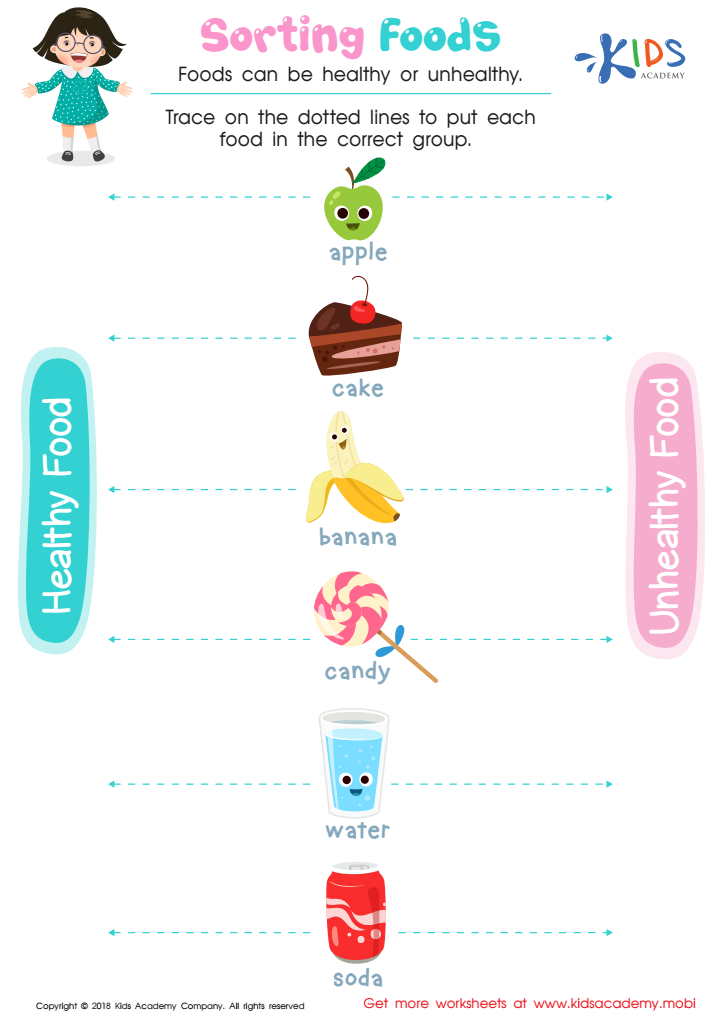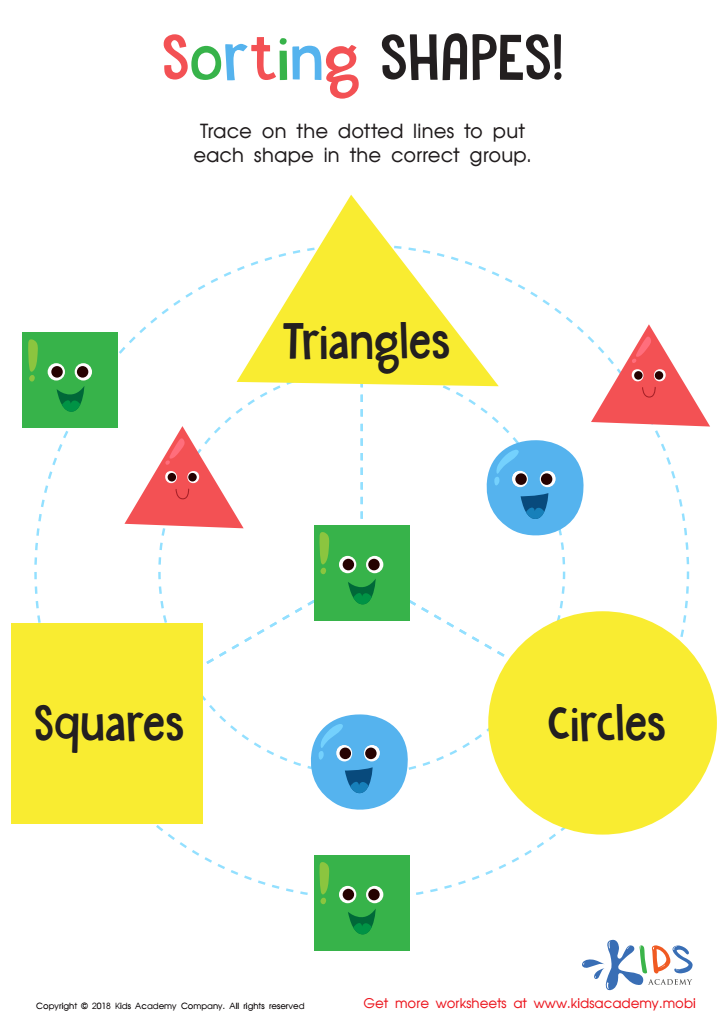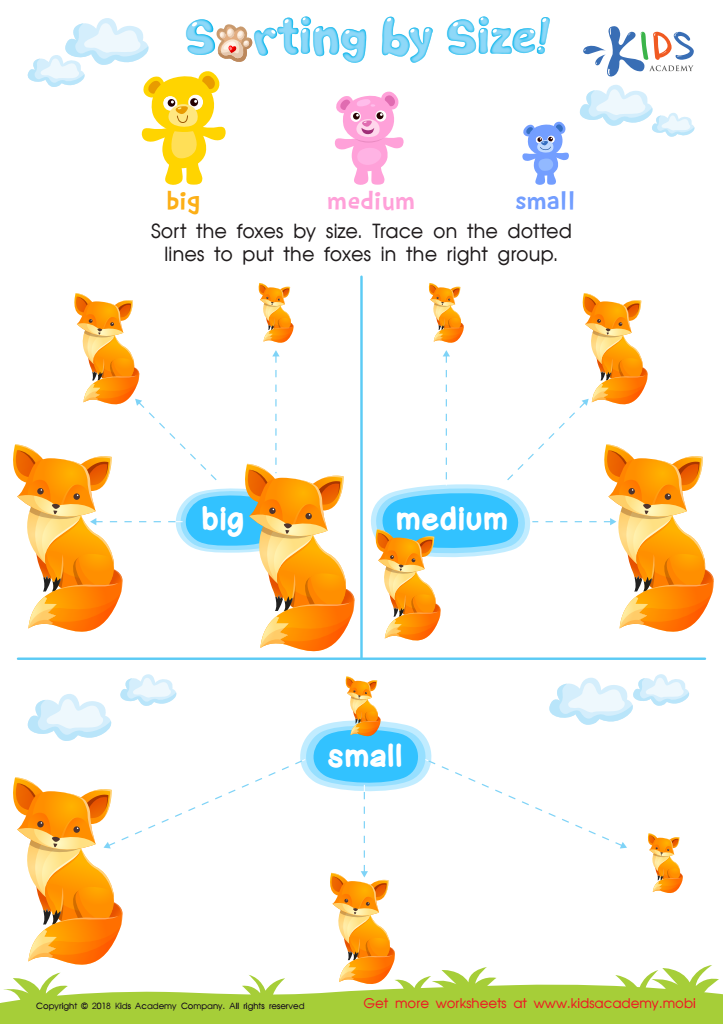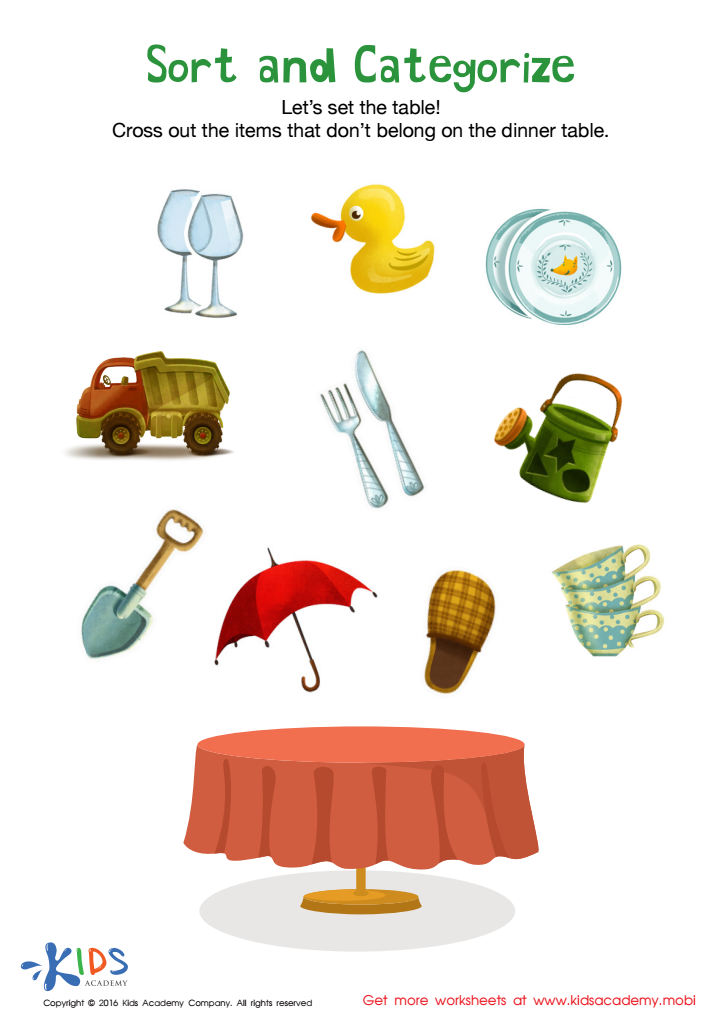Categorization skills Normal Sorting Worksheets for Ages 3-6
5 filtered results
-
From - To
Enhance your child's categorization skills with our Normal Sorting Worksheets designed for ages 3-6! These engaging printable worksheets provide a fun and interactive way for young learners to practice sorting and organizing items based on various characteristics. By categorizing objects by color, size, shape, and type, children will develop critical thinking and observational skills essential for early mathematical understanding. Perfect for home or classroom environments, our worksheets make learning enjoyable while laying a strong foundation in essential skills. Foster your child's ability to classify and group objects effectively with these thoughtfully designed resources. Start sorting and discovering today!


Sorting Food Worksheet


Sorting Animals in 3 Groups Worksheet


Sorting Shapes - Part 3 Worksheet


Sorting by Size Worksheet
Categorization skills and normal sorting play a vital role in the cognitive development of children aged 3-6. During this crucial period, children learn to notice similarities and differences, which enhances their analytical thinking and problem-solving skills. Engaging in sorting activities helps young learners classify objects based on attributes such as color, shape, size, or function. This foundational skill contributes to more complex concepts they will encounter later in subjects like math and science.
Moreover, sorting activities foster language development as children learn to articulate their reasoning, describe attributes, and expand their vocabulary. Effective categorization prepares them for school readiness and enhances their ability to make connections with the world around them. For parents and teachers, supporting these skills can lead to improved academic performance and social interactions as children learn to group and compare their experiences.
Additionally, engaging in sorting promotes fine motor skills and hand-eye coordination through tactile activities. By recognizing patterns and making classifications, children develop a sense of order and structure, laying a strong foundation for lifelong learning. Thus, fostering categorization skills through normal sorting should be a priority for both parents and educators striving to nurture well-rounded, inquisitive, and capable learners.

 Assign to My Students
Assign to My Students

















